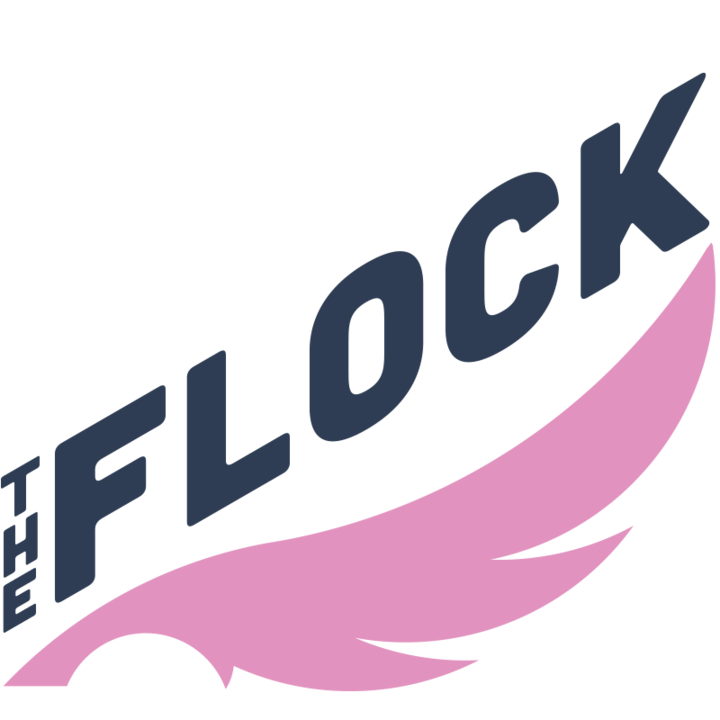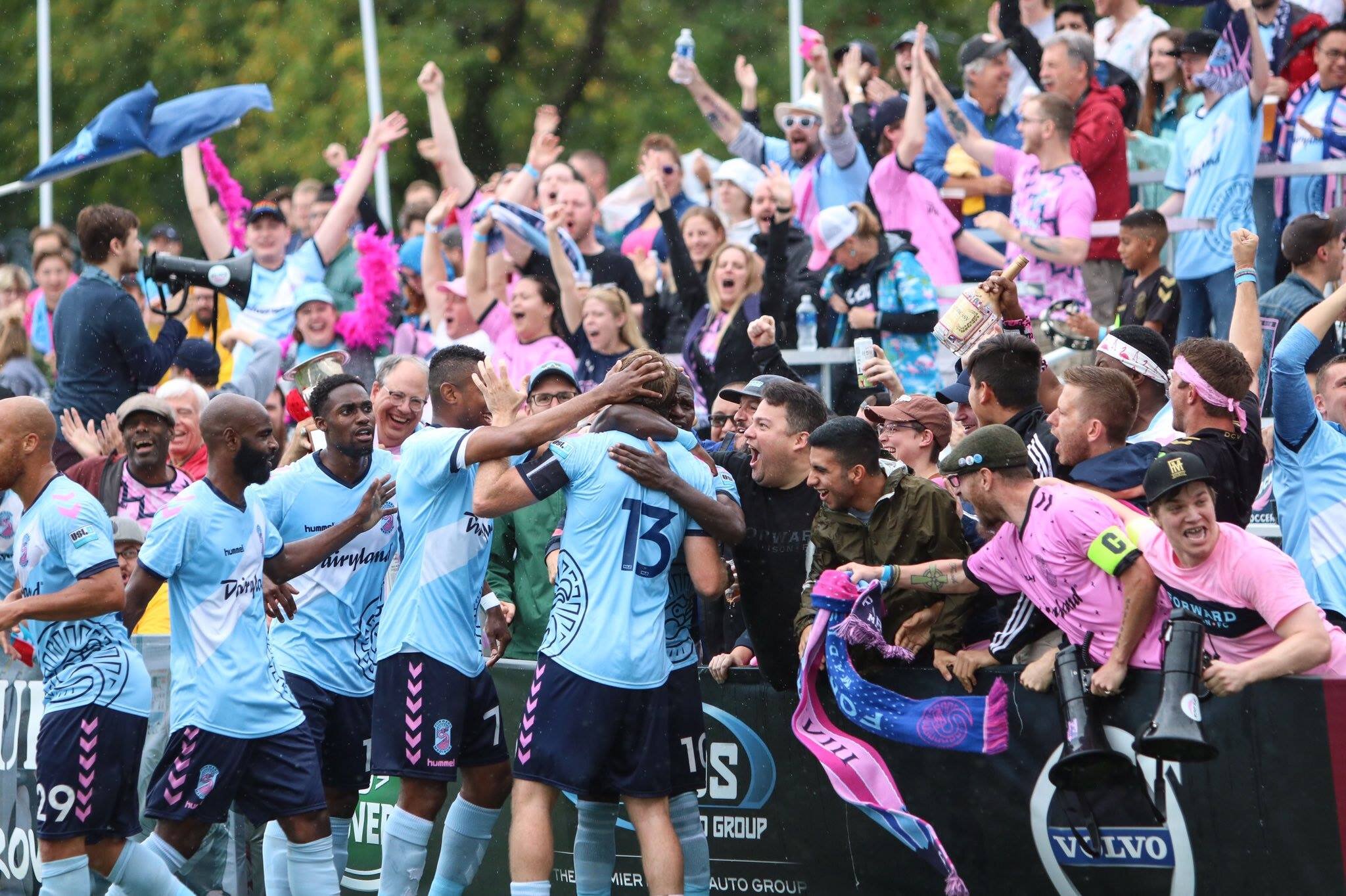The USL's Money Problem
The following is an editorial submission and does not directly reflect the collective opinion of all FMFC supporters who align themselves with the mission of The Flock (though it would be cooler if it did).
Words: Kyle Carr / Photo: Dane Sheehan
I’ll just come out and say it.
The current dispute between the USL Players Association and the higher-ups at USLHQ further highlights a deeper, systemic (and growing) issue: the exploitation of its lifeblood.
COVID-19 has created a situation and a hardship few have experienced. From the increasing death toll, to the closure of business and communities spread worldwide, everyone has felt the effects of this pandemic and lower league American soccer is no different.
Per Jeff Reuter’s pieces in The Athletic and Nipun Chopra’s feature in SocTakes, USL recently proposed to the players in USL Championship of taking a 20% pay cut, with any amount above $4,000 per month reduced up to 80% with the number contingent on housing and changes to their contracts to help the club’s financials. The USL Players Association decided to propose a counter proposal which helps players making $2,000/month or less would maintain their compensation for the 2020 season while those making greater than $2,000/month seeing a salary decrease of up to 10% per month from June 15th to the end of the season. USPLA felt this counter-proposal was needed as the initial proposal would put the players at a significant disadvantage to the situation especially those who are already struggling financially even with a fully functional season. The USLPA put out a statement about their counterproposal and creating a social media campaign to #StandWithThePlayers. USLHQ put out their own statement, however that message comes across as indifferent at its best or apathetic at worst. It would seem not every owner of USL Championship clubs is looking to put the burden on its players, with one of OKC Energy’s owners being the first to publicly make a statement. Others will attempt to either find a common ground or find other ways to pay players their full salaries and for those owners, hopefully they continue this good faith.
While this situation so far primarily affects USL Championship, it clearly will set a precedent to the lower leagues including the other USL divisions, NISA, and other professional sports leagues in the country. USLHQ’s handling of the situation has come across as making sure that the richer can try and stay richer while the bottom of the pyramid feed off of the scraps. It’s well-known there is a steep buy-in to be a part of the USL ecosystem; large franchise fees are required for any ownership group to have a team in either the USL Championship or League 1 and that number has only increased year after year and continues a wealth gap highlighting the core issues of these negotiations.
The players and supporters of USL clubs have been quietly asking for years where the money flows from expansion and annual franchise fees. Owners of USL member clubs should now be asking where and when their metaphorical ship will come in, as the high majority run at a loss year-on-year during a seemingly never-ending expansion process. Even if the come-up for a franchisee is eventually selling, what’s the point in buying a losing franchise ($$$) when you can go 3-4 hours away and just start a new project?
NuRock pockets a large portion of the revenues and profits and as owners of USL, they have primarily been silent, while franchise operators (read: clubs) continue to struggle year after year and now face dire circumstances with the pandemic. The feeling that NuRock could be fueling USL HQ’s position to strongarm the USLPA — and is willing to project the image that the reason their member clubs are struggling to make payroll is due to whiny, greedy pro athletes during a global pandemic — is another example of the economic disparity and tiers to which we have become accustomed. How can you create a proposal that would cause some of these players to make less than the mandated minimum wage in a given club’s state? Is it really a problem for players to see their offer and realize this does more harm than good for them? Everybody is struggling and unfortunately some more than others. So why not work towards trying to find a solution in which everyone can salvage something? I feel it’s important to note that the club owners (read again: franchise operators) are not yet putting pressure on their players to take on a significant burden of the current situation — but at this point some owners may feel that’s the only way to handle things since the league claim no responsibility.
Most of this can be tied to the issue that starts at the top regardless of the industry or market; whether it’s professional sports, the service industry, or even the federal government — the rich look out out for the rich, and the rest get left behind. NuRock stands to pull profits out of the USL structure once again in 2020, despite working to devalue their players and their contracts. At what point do franchise operators (read: club owners) start demanding USL provide true value for their money?
NuRock and the higher-ups at USL would continue to appear as the greed that doesn’t care about the sport or its support. As long as they collect the checks, that’s all that matters. Do they care or is it simply C.R.E.A.M.? There is already a divisive relationship between not only USL and the US Soccer fan community but the US Soccer ecosystem as a whole. Fans are at the mercy of those few that hold the most power and sure there can be some agreement, but potentially at what cost? Will we see this go further up the US Soccer legal pyramid? I’m sure the federation would love to avoid another losing PR battle shortly after the USWNT lawsuit and its Chief Legal Officer resigning.
There are so many questions that we need to ask NuRock, the Papadakis family, and USL Championship ownership. Hopefully they can avoid thinking in the short-term interest of their own pocket, and instead the interest of their future aspirations, and the players and fans. Once you lose the image battle, it’s tough to regain that trust. Once you lose your fan base, you lose the heart of the club. Eventually that trickles down to the loss of money that those in power treasure so much.
Kyle Carr is one of the founders of Featherstone Flamingos, a Flock At-Large Director, and the current head of our Matchday Ops committee. Kyle is also a big fan of the Milwaukee Bucks and write for a fan blog site called Brew Hoop. When he’s not quarantined and/or we’re not living in a post-apocalyptic wasteland, you can probably find him eating at some restaurant in Madison and/or hanging out with his family, dog (Gio) and cat (Pico) #BuyThisSh*t


